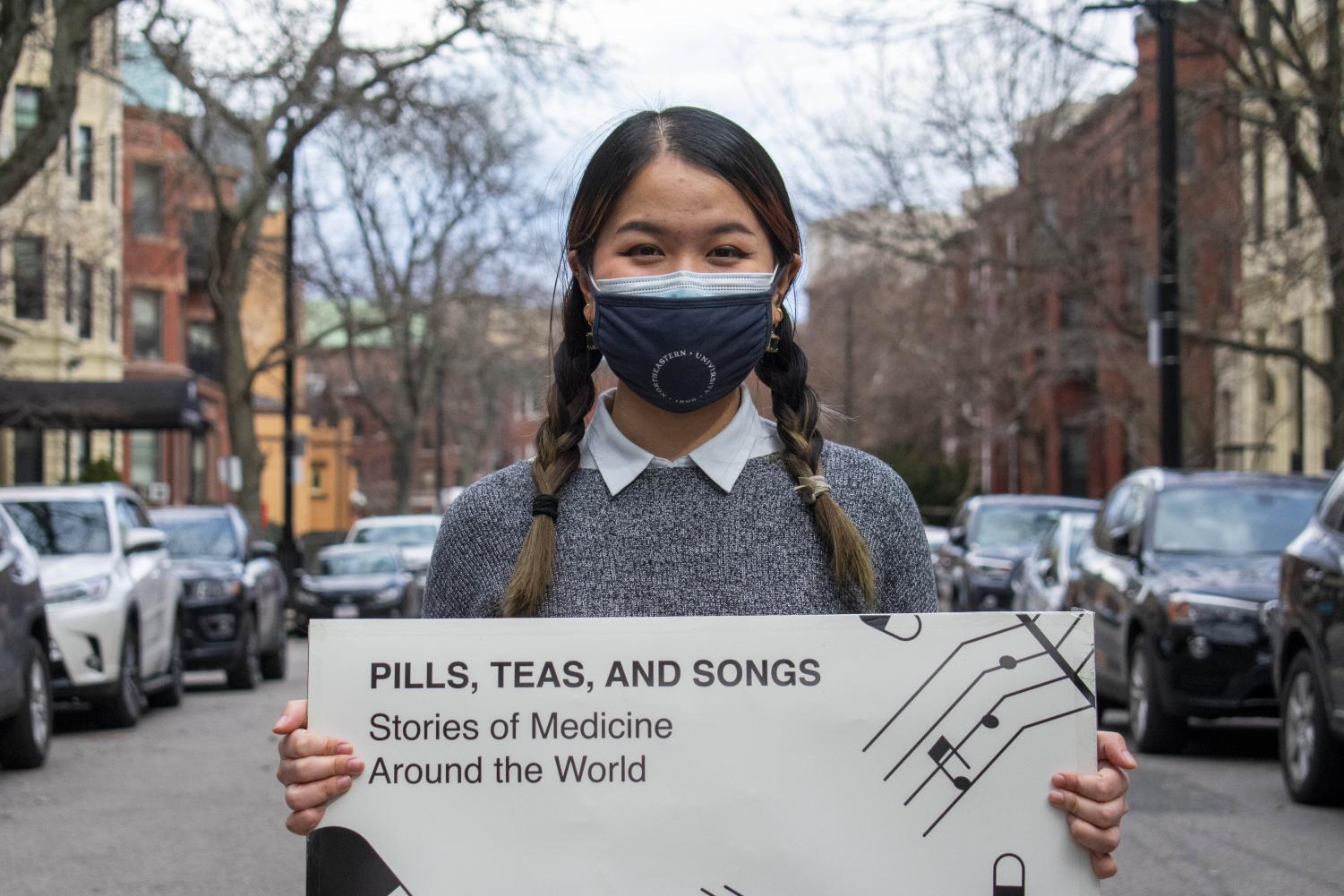
Craving Vietnamese food during quarantine, second-year PharmD student Debby Nguyen began shopping for groceries in Chinatown on a weekly basis. Yet it was never the food that caught her eye.
As she shopped, she found herself entranced by a pharmacy counter inside the market, which caused a rush of nostalgia. She was engulfed in childhood memories of helping her late grandfather package powders and pills for his pharmaceutical patients back home in Vietnam.
These moments sparked her curiosity for traditional Vietnamese medicine, as she said she felt a “strong call to home and understanding my family history.” She began to research practices among other cultures and learn about medicine across the globe from experts themselves.
This marked the beginning of her journey in writing her book, “Pills, Teas, and Songs: Stories of Medicine Around the World.”
“It’s not as much about the scientific side of medicine as it is about the cultural side and how people really interact with these practices,” she said. “I’m curious about how history, culture and politics shape how people view and approach medicine.”
Nguyen was also intrigued by how different forms of cultural, traditional medicine are often grouped together into one category: “alternative medicine.”
“There’s so much artistry behind these kinds of practices. … But in the U.S. it’s just called ‘alternative,’” she said, hoping to give voice to underrepresented communities and cultures. “And by saying that another culture’s medicine is ‘alternative,’ it’s like saying it’s less than ours because it’s not the main one.”
Now, Nguyen awaits the April release of her book, which features 30 interviews from nearly every continent and includes diverse perspectives, such as those from Black and Indigenous communities.
“I wanted it to be a very well-rounded book on different topics all around medicine,” she said. “It’s really about the diversity of not only the practice but the population that medicine serves.”
The book’s range in voice and medicinal practice felt particularly unique, said Diedre Hammons, Nguyen’s developmental editor who freelances at New Degree Press.
“What really struck me was how intentional Debby was in seeking the right people to tell these stories of various cultures,” Hammons said. “It gives a level of authenticity to a book that I think we rarely find.”
A chapter that truly impacted Nguyen was one highlighting Black maternal health, where she spoke with midwives and birth coaches. She learned how Black women in the United States are at a disproportionate risk of pregnancy-related issues due to lack of accessibility to quality healthcare.
“This systemic racism is really at the heart of everything,” she said, gaining a stronger understanding of the racial disparities within the healthcare industry. “Witnessing that inequality and racism based on your ethnicity or skin color pains me. It hurts all women of color.”
Dr. Alisa Lincoln, director of the Institute for Health Equity and Social Justice Research, also advised Nguyen during the writing process with every chapter. Integrating such diverse stories into one piece, Lincoln said, enabled Nguyen to find connections among different cultures and communities, even if they were thousands of miles apart.
“There are sections of the book where she really finds commonalities among groups where you wouldn’t expect it,” Lincoln said. “The book reminds us that we are all more similar than we are different.”
For Lincoln, what she loved most about the book was how it became a culmination of academia, storytelling and personal connection.
“She blends together understandings that she’s gained as a pharmacy student around medication and STEM, with the power of lived experience and narrative,” Lincoln said. “That’s really what makes the book so special.”
Nguyen only learned about Western medicine in college, but as she conducted interviews, she said she developed a greater understanding of how important other types of medicine are. She also explained how she realized that people she knows in the healthcare industry often use other methods of healing as well, such as her favorite professor who is a licensed acupuncturist and her father, also a pharmacist, who always drinks tea after meals.
“I think there’s a perception in Western society that Eastern and Western medicine are the only two that exist and that they’re at odds with each other,” she said. “But now I see that they complement each other rather than fighting each other.”
Hammons also admired how this book allowed Nguyen to learn more about herself, in addition to other communities and healthcare overall.
“She wrote this book with so much sincerity and thoughtfulness,” Hammons said. “It was also nice to watch her as she explored other cultures, which gave her the outlet to explore her own family history and culture in a way she hadn’t done before.”
Following the book’s publishing, Lincoln believes that Nguyen’s book and journey will inspire students to tell their own stories and explore their passions.
“I hope it will encourage other people to find creative ways to bring together their own lived experience, their own stories, with their scholarship and the things they’re learning,” she said.
"book" - Google News
March 16, 2021 at 06:00AM
https://ift.tt/3qQDytE
Debby Nguyen debuts book on traditional medicine worldwide - The Huntington News
"book" - Google News
https://ift.tt/2Yv0xQn
https://ift.tt/2zJxCxA
Bagikan Berita Ini














0 Response to "Debby Nguyen debuts book on traditional medicine worldwide - The Huntington News"
Post a Comment